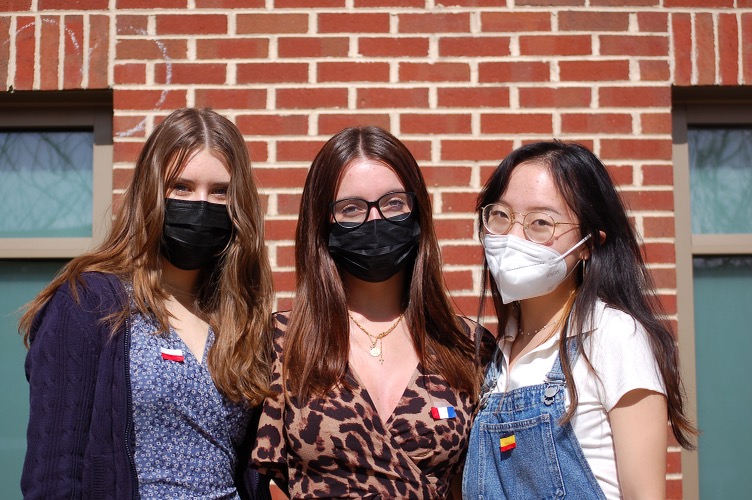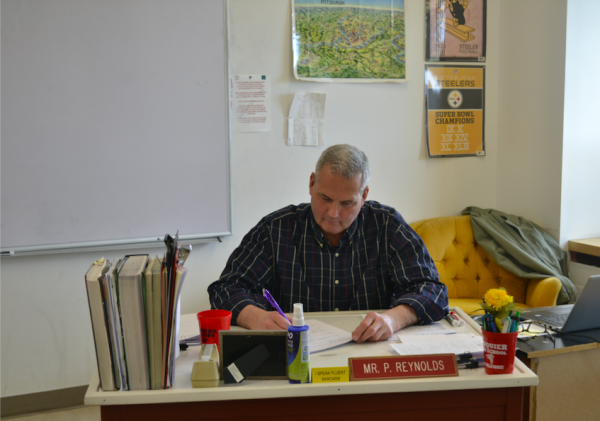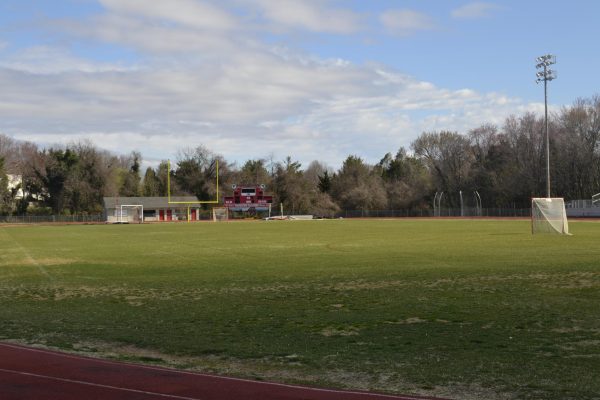Exchange Students Through Covid Storm
Exchange students Karina Jedrzejczyk (left, Poland), Julia Doumont (middle, France) and Emily Xia (right, Germany) in front of the Cube.
Due to the Coronavirus pandemic more exchange students have come to the US hoping for better circumstances than last year regarding COVID-19. As a result of the lifting of the restrictions, the number of students applying for educational visas doubled. In the beginning of the program this year, there were little to no issues with the new virus.
Thankfully, the number of COVID-19 cases in the state of Virginia has decreased. However, with the uprising of new variants, this number could change and students could contract the disease again. According to the CDC website, “Among hospitalized adolescents, nearly one third required intensive care unit admission, and 5% required invasive mechanical ventilation; no associated deaths occurred.” This shows that the chances of teens being hospitalized due to COVID-19 are very low, but it can happen. This can be a serious issue for the students, because some of the insurance policies do not cover the hospitalization of the student with COVID-19. This means that students would have to pay out of pocket for their own hospital treatment.
Currently, masks are not required either in the school buildings or buses. This has had an effect in the number of COVID-19 cases. They suffered a decrease during the past few weeks, but with the rising new variants, such as the “BA.2 variant”, it could result in a new increase of the cases, which would probably affect the exchange students. If COVID-19 cases rise again, and what happened in 2020 is repeated, as a consequence, these students would have to return to their home countries and end their exchange year months ahead of schedule.
Getting tested is not easy. The number of tests available increased with the new distribution carried out by the government, but its availability has changed again. Julia Doumont, a French exchange student, contracted COVID-19 twice while on exchange and says, ”I think it’s harder to get tested here than it is in France, definitely.”
It is clear that COVID-19 cases have been frequent this school year, as exchange students at FHS tell us. Emily Xia, a German exchange student, said, “I haven’t been infected with COVID since the pandemic started, but I know many exchange students that have been exposed or have had COVID during these past months.”
Being away from family and friends can be especially hard when not feeling well. That is what Karina Jedrzejczyk, a Polish student, explains, “It affected my mental health [being in lockdown] because I would spend the whole day in my room not doing anything, not talking to anyone; missing my family, I would text them so many times a day, and I started missing them more; a lot more.”
The virus affects students in different ways (some of them have symptoms and others don’t), but the difference is that, even though the great majority are feeling really welcomed and are happy in their exchange, where these students are living is not really their homes.
Thanks for reading The Falconer. We're happy to provide you with award-winning student journalism since 1963, free from bias, conflicts of interest, and paywalls. We're able to continue with the generous support of our local community. If you're able, please consider making a donation. Any amount is incredibly helpful and allows us to pursue new and exciting opportunities.





